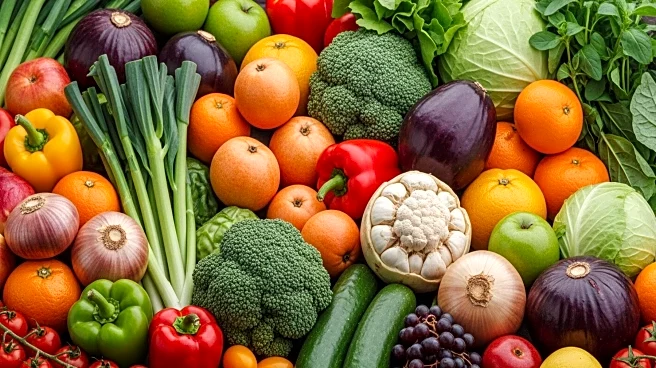What's Happening?
Ministers and high-ranking officials from across the Americas convened in Brasilia to discuss the need for a new narrative in agriculture that emphasizes sustainability and the sector's capacity to feed
the world. The meeting, organized by the Brazilian government and the Inter-American Institute for Cooperation on Agriculture (IICA), focused on the role of science, technology, and innovation in enhancing food security and agricultural productivity. Discussions highlighted the importance of differentiating between agricultural systems and promoting those that are environmentally sustainable. The event underscored agriculture's role in addressing global challenges such as food security, climate change, and social inequality.
Why It's Important?
The call for a new narrative in agriculture reflects a shift towards recognizing the sector's potential to contribute positively to global challenges. By emphasizing sustainable practices, the Americas aim to position themselves as leaders in environmentally responsible food production. This approach could influence public policy and private sector involvement, driving innovation and resilience in agricultural systems. The focus on sustainability aligns with global efforts to combat climate change and ensure food security, making the Americas a key player in shaping future agricultural practices.
What's Next?
The discussions in Brasilia are expected to lead to the development of new public policies that integrate scientific advancements and traditional knowledge to enhance agricultural resilience. Countries in the Americas may collaborate on initiatives to promote sustainable practices and improve productivity through technological innovation. The outcomes of this meeting could influence international agricultural policies and partnerships, positioning the region as a model for sustainable food systems.
Beyond the Headlines
The emphasis on a new narrative for agriculture highlights the need to address misconceptions about the sector's environmental impact. By showcasing successful sustainable practices, the Americas can challenge negative perceptions and promote a more balanced view of agriculture's role in development. This shift could lead to increased investment in sustainable agricultural technologies and practices, fostering long-term environmental and economic benefits.









